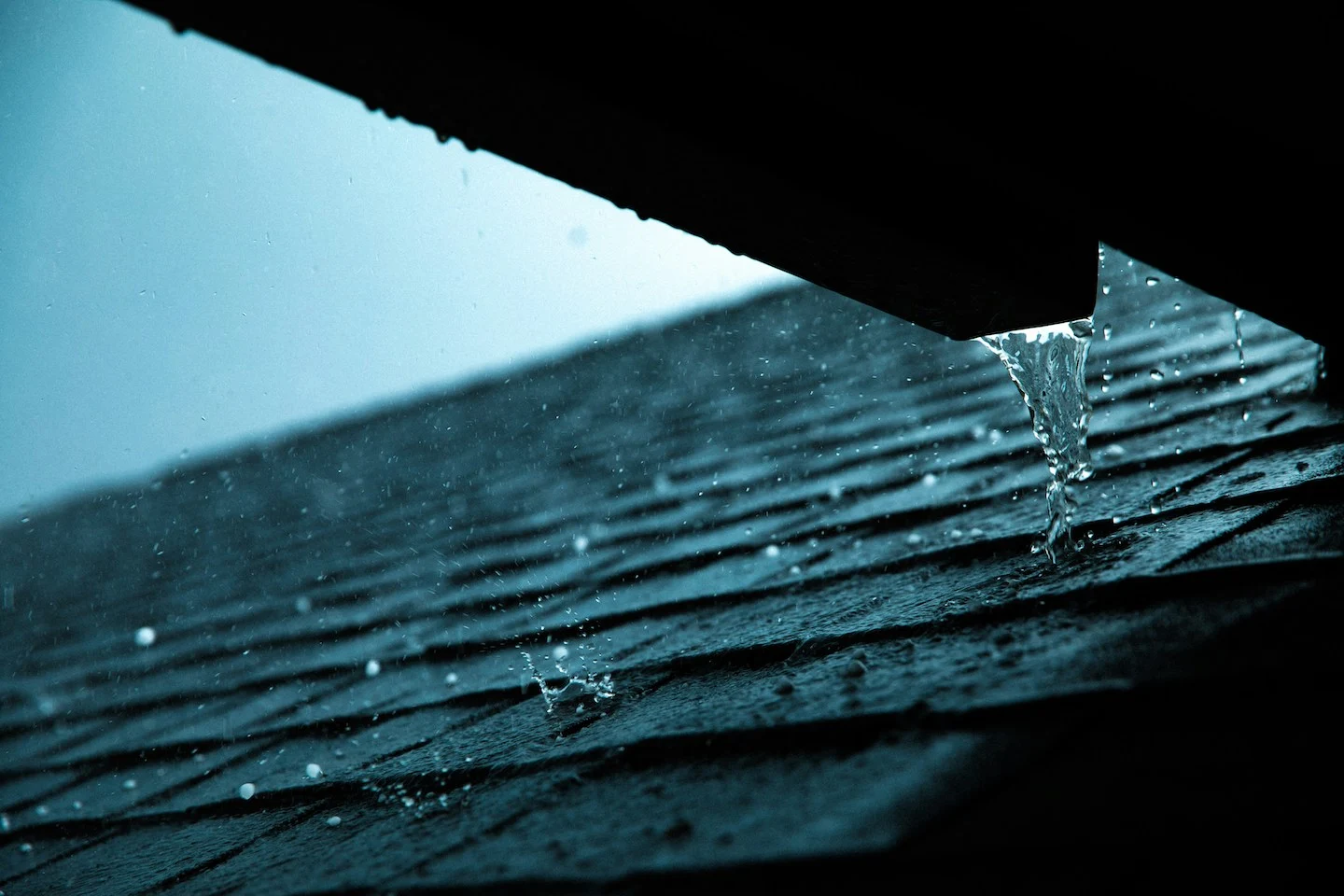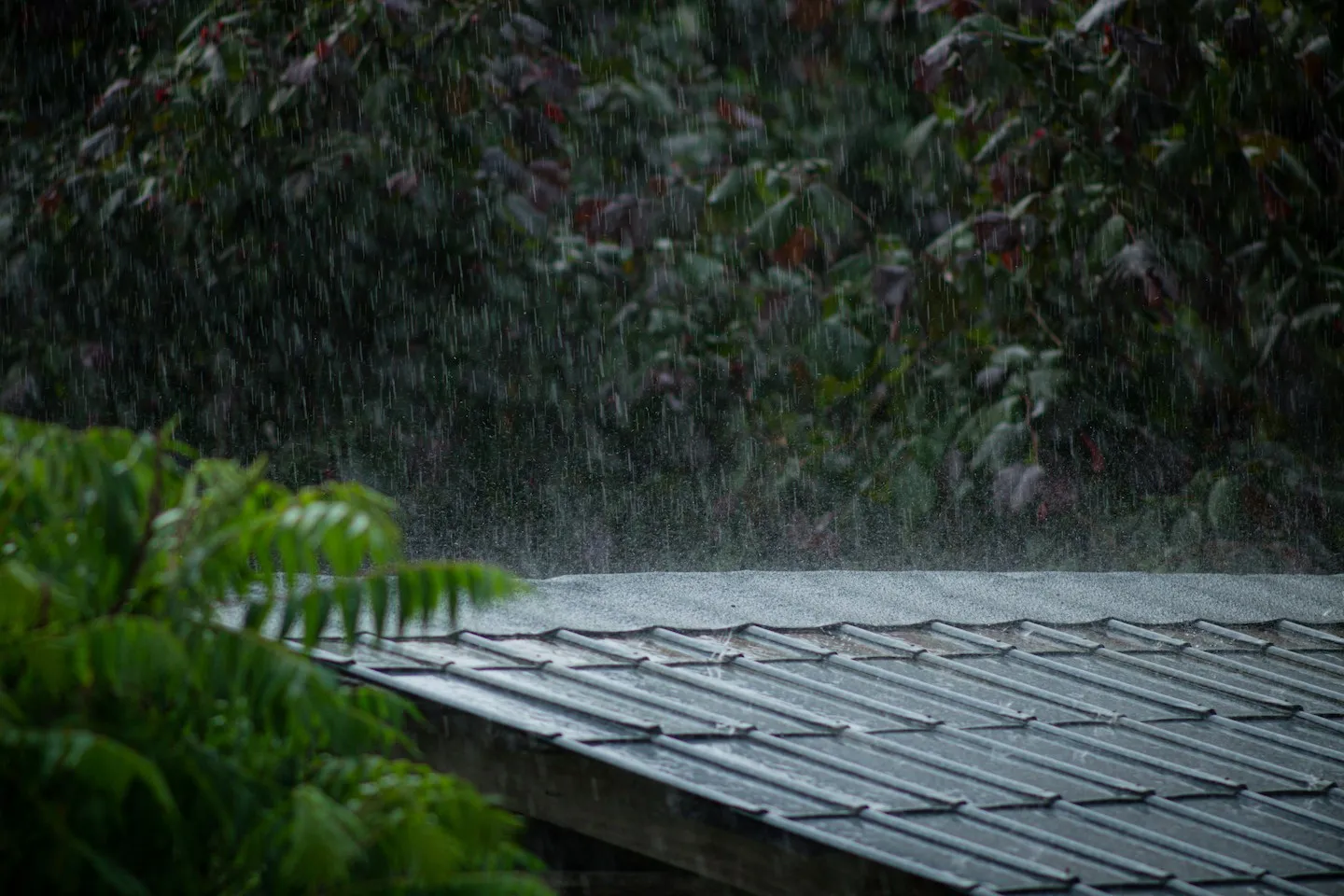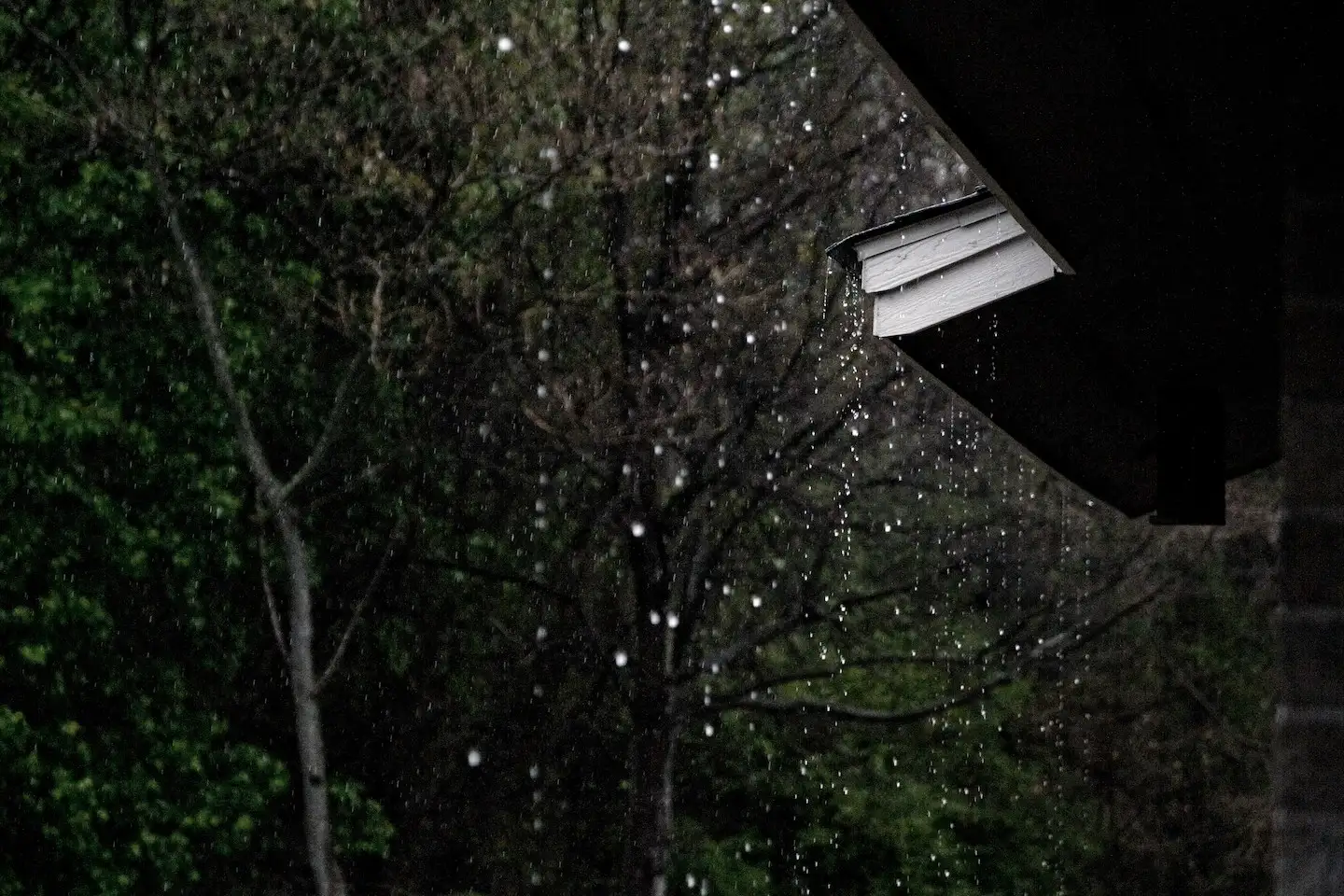Your roof is your home’s first line of defense against the elements, with rain being the most common and potentially damaging. Rain proof roofing is crucial for shielding homes from water damage and maintaining a dry and comfortable living environment.
Leaky roofs can lead to costly repairs and health hazards like mold growth. Fortunately, there are several types of rain proof roofing materials available, including asphalt shingles, metal roofing, and built-up roofing (BUR). In this guide, we’ll explore these options and provide insights into ensuring your home stays dry and protected.

Rain proof roofing is a necessity for maintaining and protecting the structural integrity of your home. Opting for roofing systems that offer a higher level of resistance to rain can also extend the lifetime of your roof, so you can feel confident that your investment is well worth the money.
Your roof is your home’s first line of defense against water intrusion. Without proper rain proofing, water can seep through even the smallest of cracks, leading to rotting wood, weakened foundations, and compromised structural integrity. Over time, this can result in costly repairs and even pose safety hazards to you and your family.
The consequences of water damage caused by leaky roofs can be far-reaching and severe. From unsightly stains on ceilings and walls to warped flooring and mold growth, the effects of water infiltration can wreak havoc on your home’s interior. Mold, in particular, can pose significant health risks, exacerbating allergies and respiratory problems for you and your loved ones.
Given the potential consequences of water damage, it’s essential to take proactive measures to ensure your roof is adequately rain proofed. Regular inspections, timely repairs, and investing in high-quality roofing materials are all crucial steps in safeguarding your home against water intrusion. By addressing any issues promptly and ensuring your roof is properly maintained, you can mitigate the risk of water damage and enjoy peace of mind knowing your home is well-protected.

Asphalt shingles are a staple in residential roofing due to their affordability, versatility, and effectiveness in repelling water. These shingles consist of a fiberglass or organic mat infused with asphalt and coated with mineral granules. The granules not only provide aesthetic appeal but also serve as a protective layer against UV rays and water damage.
One of the key advantages of asphalt shingles is their ease of installation, making them a favorite among homeowners and contractors alike. They come in various styles and colors to complement any architectural design, offering both functionality and curb appeal.
Metal roofing has gained popularity in both residential and commercial applications for its exceptional durability and longevity. Typically made from materials such as steel, aluminum, or copper, metal roofs offer superior resistance to water penetration and can withstand extreme weather conditions, including heavy rain, high winds, and hail.
Metal roofing panels are installed with overlapping seams, creating a tight barrier that prevents water from seeping through. Additionally, metal roofs are lightweight, fire-resistant, and recyclable, making them an environmentally friendly choice for sustainable construction.
Built-up roofing, or BUR, is a time-tested solution known for its resilience and longevity in commercial and industrial settings. This roofing system consists of multiple layers of asphalt-impregnated felt or fiberglass reinforced with layers of bitumen (asphalt or coal tar). The layers are alternated and topped with a protective surfacing, such as gravel or mineral granules, to provide additional waterproofing and UV protection.
The built-up roofing process creates a seamless, durable membrane that effectively repels rainwater and prevents leaks. BUR systems are highly customizable to accommodate various roof shapes and slopes, making them a versatile choice for flat and low-slope roofs.

The slope and design of your roof significantly impact its ability to shed water effectively and maintain rain proofing. Here’s what to consider:
Impact on Water Shedding: Steeper roofs with a greater slope are better at shedding water quickly, reducing the risk of water pooling and infiltration. In contrast, flat or low-slope roofs require extra attention to ensure proper drainage and prevent water buildup.
Suitability for Roof Types: Certain roofing materials are better suited for specific roof slopes and designs. For example, asphalt shingles are commonly used on pitched roofs due to their flexibility and ease of installation, while metal roofing is often preferred for flat or low-slope roofs because of its durability and seamless design.
When choosing rain proof roofing, it’s essential to consider both the upfront costs and long-term savings associated with different materials.
Here’s why:
Upfront Costs vs. Long-Term Savings: While some roofing materials may have higher initial costs, they can offer significant long-term savings through improved energy efficiency, reduced maintenance requirements, and longer lifespans. Consider factors such as durability, energy efficiency, and maintenance needs when evaluating the overall value of a roofing material.
Importance of Quality and Professional Installation: Investing in quality materials and professional installation is essential for ensuring the effectiveness and longevity of your rain proof roofing system. Skimping on materials or cutting corners during installation can compromise the integrity of your roof and lead to costly repairs down the line. Prioritize quality and expertise to maximize the performance and lifespan of your rain proof roofing.
Ensuring your home has effective rain proof roofing is paramount for safeguarding against water damage and maintaining a dry, comfortable living environment. With leaky roofs posing potential hazards such as mold growth and structural deterioration, it’s crucial to take proactive measures to protect your investment.
Whether you opt for the affordability and versatility of asphalt shingles or the durability and longevity of metal roofing, making informed decisions will ensure your home remains well-protected against the elements for years to come. Contact A&W Roofing, your local GAF Master Elite Certified contractor, today to learn more about how we can help you achieve a rain proof roofing solution tailored to your needs.